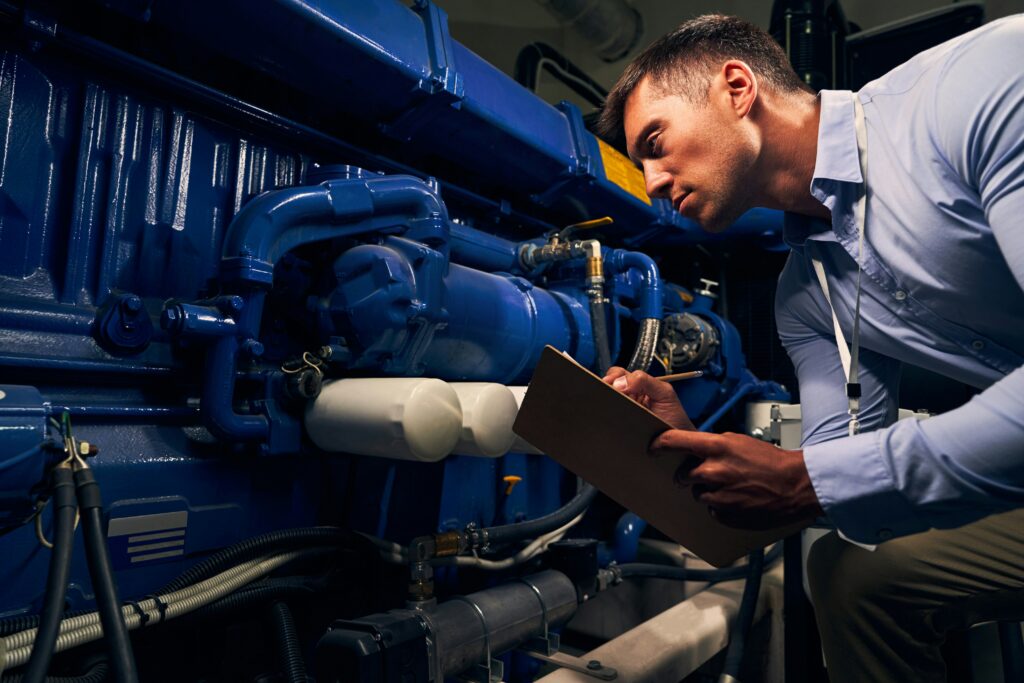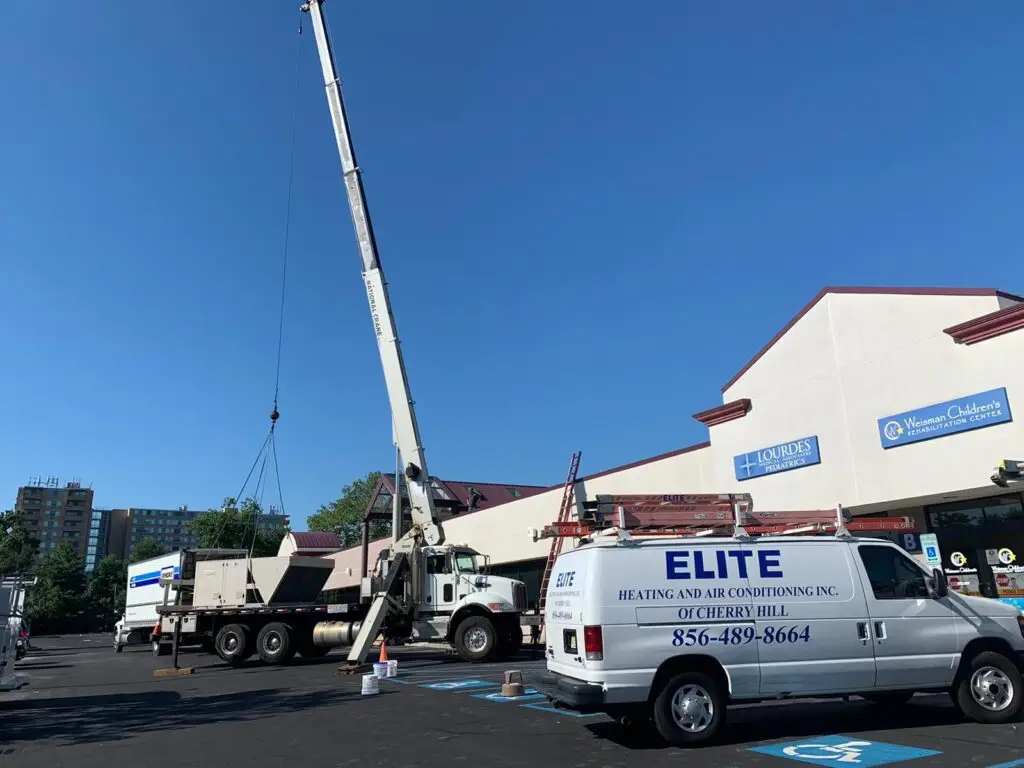How to Prepare Commercial HVAC for Power Outages in South Jersey
Prepare Your Commercial HVAC for Power Outages
Power outages in New Jersey are an ongoing concern, particularly during severe weather events. In 2020 alone, New Jersey experienced multiple major outages, with one storm in August leaving approximately 788,000 customers without power.
In addition to hurricanes and nor’easters, our state also experiences a significant number of lightning strikes—over 137,000 in 2022 —posing a direct threat to electrical infrastructure. For commercial building owners and investors, these disruptions can lead to serious HVAC system failures, resulting in costly repairs and business downtime. It’s important to prepare for emergencies. Here’s how to prepare your commercial HVAC for power outages in South Jersey.
Learning from the Past
The aftermath of Hurricane Sandy in 2012 served as a stark reminder of why preparation is essential. The storm caused prolonged power outages across the region, with some areas of New Jersey experiencing weeks without electricity. Businesses that lacked backup power solutions and emergency response plans suffered significant financial losses, with approximately 19,000 small businesses in the state incurring damages exceeding $250,000 each.
In contrast, those that had taken proactive steps—such as installing surge protectors, securing backup power systems, and developing continuity plans—were able to restore operations much faster.
What happens to a building without its HVAC?
When a commercial building’s HVAC system shuts down due to a power outage, the consequences can be immediate and costly. Without climate control, indoor temperatures can quickly become uncomfortable, especially during extreme weather. In summer, heat and humidity can rise, leading to poor air quality, increased mold risk, and damage to temperature-sensitive equipment or inventory. In winter, a lack of heating can cause pipes to freeze and burst, resulting in expensive water damage.
Additionally, businesses that rely on controlled environments—such as data centers, healthcare facilities, and restaurants—may face regulatory violations or product losses. Employee productivity and tenant satisfaction also decline in unconditioned spaces, potentially leading to financial losses or liability issues. This makes it essential for commercial property owners to implement HVAC backup solutions and emergency preparedness plans to prevent operational disruptions.
To minimize damage and maintain indoor comfort during power outages, commercial property owners should take the following proactive steps to protect their HVAC systems.
1. Install Surge Protection Devices (SPDs) to Prevent Electrical Damage
Power surges, often caused by lightning strikes or fluctuations in the power grid, can severely damage HVAC equipment by overloading electrical components. Surge protection devices (SPDs) help prevent this by diverting excess voltage away from the system.
Where Should Surge Protectors Be Installed?
- Main Electrical Panel: Protects the entire building’s electrical system from incoming power spikes.
- HVAC Control Boards: Surge protectors at the control board prevent damage to the thermostat, sensors, and communication circuits.
- Compressor and Motors: Installing SPDs at these points shields the most expensive HVAC components from sudden voltage increases.
How Can an HVAC Contractor Help?
Elite Heating and Air Conditioning can assess your building’s electrical layout and install SPDs at strategic points. They can also ensure compatibility with your HVAC system, preventing installation errors that could compromise protection.
2. Schedule Regular Maintenance and Inspections
Routine maintenance ensures your HVAC system is in peak condition before a power outage occurs. Systems that are already weakened by wear and tear are more likely to fail completely when subjected to an outage.
Key Maintenance Tasks to Reduce Power Outage Risks
- Inspect Electrical Connections: Loose or corroded connections increase the risk of power surges causing permanent damage.
- Clean Coils and Filters: Dirty components make your HVAC system work harder, increasing strain when power returns after an outage.
- Test Startup Sequences: Ensure the system can restart safely after a shutdown.
Commercial HVAC Professionals Can Prevent Problems
Our Customized Commercial Care Plans provide routine maintenance specifically designed for your building. Elite’s experienced HVAC professionals can conduct routine inspections and proactively address issues that could become serious during an outage. They can also test the system’s restart procedures to ensure proper functionality when power is restored.

3. Invest in an Uninterruptible Power Supply (UPS) for Short-Term Backup
An uninterruptible power supply (UPS) is a battery backup system that provides temporary power to critical electrical components during an outage. While a UPS won’t keep an entire HVAC system running for extended periods, it plays an essential role in protecting sensitive equipment temporarily until full power can be restored.
- Prevents Abrupt Shutdowns: A UPS allows critical HVAC components, such as thermostats and control boards, to stay powered long enough for a safe shutdown.
- Protects Against Data Loss: For HVAC systems with programmable thermostats or building management systems, a UPS prevents data loss during an outage.
- Reduces Restart Stress: When power returns, HVAC systems often experience a surge of electrical demand. A UPS helps regulate the restart process.
Need some help with a UPS?
HVAC professionals from Elite Heating and Air Conditioning can recommend and install the right UPS system for your specific HVAC setup, ensuring essential components remain powered during outages.
4. Consider Backup Generators for Long-Term Outage Protection
For businesses that cannot afford HVAC downtime, a backup generator is essential. These systems automatically activate during a power outage, keeping HVAC systems operational and preventing costly temperature fluctuations.
Choosing the Right Generator
- Standby Generators: These are permanently installed and automatically start when an outage is detected.
- Portable Generators: These require manual setup and can power smaller systems during outages.
Businesses that invested in backup generators before Hurricane Sandy were able to maintain operations, while others faced prolonged shutdowns and significant financial losses. The ability to keep HVAC systems running was particularly critical for industries like hospitality, healthcare, and manufacturing, where temperature control is essential for safety and compliance.
What Size Generator Will You Need During Power Outages?
The HVAC professionals at Elite Heating and Air Conditioning can assess the power requirements of your HVAC system and recommend the correct generator size. They can also integrate the generator into your building’s electrical system to ensure seamless operation during outages.

5. Develop an Emergency Response Plan for HVAC System Protection
An emergency response plan outlines the steps to take before, during, and after a power outage to minimize HVAC damage and ensure a smooth recovery.
Key Elements of an HVAC Emergency Response Plan
- Pre-Outage Preparations: Ensure HVAC maintenance is up to date and test backup systems regularly.
- Shutdown Procedures: Establish protocols for safely shutting down HVAC systems to prevent damage from abrupt power loss.
- Post-Outage Restart: Define the proper sequence for bringing HVAC systems back online to prevent electrical overload.
- Emergency Contacts: Keep a list of HVAC contractors who can provide emergency service if needed.
Need help with an emergency response plan?
Elite’s HVAC experts can help you draft and implement an emergency response plan, conduct staff training on proper outage procedures, and provide emergency service in case of unexpected failures.
Get Ready!
Power outages in South Jersey are a reality that commercial building owners must be prepared for. The devastating impact of Hurricane Sandy showed just how critical it is to have a plan in place. Businesses that had invested in HVAC protection, backup power solutions, and emergency planning recovered far more quickly than those that had not.
By taking proactive steps—such as installing surge protection, maintaining your HVAC system, investing in a UPS or generator, and developing an emergency response plan—you can protect your building’s HVAC system from costly damage and downtime.
Working with Elite Heating and Air Conditioning of South Jersey ensures that these solutions are correctly implemented, maximizing your system’s resilience and keeping your building comfortable even when the power goes out.
If you’re unsure about your current HVAC setup, now is the time to schedule an assessment with Elite Heating and Air Conditioning of South Jersey. Proudly serving the region’s commercial HVAC needs for more than a quarter century!



